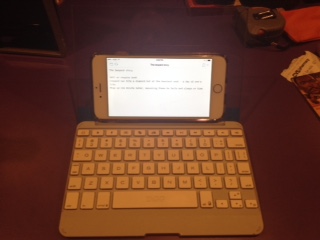My first draft was 220,000 words of symbol-laden passages and over-described locales. Over years I steadily replaced sets of words with smaller stronger ones, refining the language to heighten the story and the emotional viewpoint. The never-quite-articulated goal was for the words to hold more weight relative to their size thanks to their structure.
In four passes I got down to 120,000 words. I cut few complete scenes. Mostly I just kept redoing the language, finding slenderer shorter beams for each bit of structure, abandoning ideas that were less essential. It was like starting with an Art Deco skyscraper and renovating it into a geodesic dome, bit by bit.
Now I hope to write less in the first place but I am not sure it is turning out that way. At least I outline more, or more frequently, nothing grand but enough to guide me. Still, once it’s prose, my process scales to it. Less is an asymptote. Even a small post like this, I write and rewrite, in layers, questioning the questioning.
Yesterday going through the magazine pile for something to read with my soup, I stumbled upon an article discussing linguist Noam Chomsky’s controversial recent ideas about the beginning of language. Chomsky theorizes early humans created the foundations of language by developing a new ability Chomsky calls Merge, the ability to group mental objects and work with them as a unit.
I’m no judge of linguistics theory but as an idea Merge resonates with me. Something in my process also looks to merge, or at least more densely encode, meanings – and wants a lot of meaning to encode. Just as we care about both increasing bandwidth and compressing data, maybe the drive to merge is tied in with communication in multiple ways, a circle of acquiring and optimizing we have yet to map out.
I also confess a happy feeling about my own fiction’s truth. One of the angels to appear late in my novel is of_clumping, which I felt was a driving force in our universe, from stars to black holes. How nice to think this is an angel of meaning as well.
